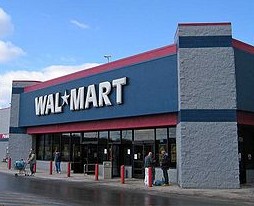We haven’t always been a nation of consumers.
I remember when Americans were customers. We bought things because we wanted them or needed them. We would have laughed in the face of anyone with the audacity to suggest that it was our patriotic duty to consume, as Bush did after 9/11. If we were faithful to a brand, that faithfulness was brought about by value or product superiority. Companies worked hard to persuade us to become their customers, and they knew better than to insult us by assuming we were forced to use their products no matter what.
I can’t tell you with certainty when the shift from customer to consumer began. My first awareness of American-as-consumer came with the introduction of the “one way” soft drink bottle that was introduced in the middle of the 1960s.
Until then, Coke, Pepsi and the other soft drink makers sold their products in returnable glass bottles. At the time of purchase a deposit was paid, two cents for a 6 1/2, 10 or 12 ounce bottle and a nickle for a quart. The deposit and return program wasn’t a government mandate, but was part of the soft drink companies’ business model. When the bottles were returned, they weren’t crushed and made into new bottles, which is how recycling would take place today, but were washed, disinfected and refilled to go back on the grocers’ shelves.
Around soft drink vending machines folks used to play a gambling game. On the bottom of each bottle was stamped the name of a town, signifying the location of the bottling facility where the bottle had been born. After everybody got their Cokes or Pepsis, the person with the town farthest away paid for the round.
Then came the “no deposit/no return” bottle. Although still made of glass, these bottles weren’t to be returned to the retailer for the return of a deposit. Instead, they went straight into the trash and to the landfills of America. For the most part, Americans accepted this without question, embracing a brave new modern world of easy answers. And it didn’t seem to occur to most people that the cost of these free “no deposit/no return” bottles was being born by the user, included in the purchase price and in local taxes to run the landfill. The age of consumerism had arrived.
My grandfather, a proud mountain man, died in 1955. I’m sure that if someone had approached him before he died and told him that within a decade people would be drinking Coke out of glass bottles that wouldn’t be washed and reused but merely thrown out with the trash, he’d laugh. American’s aren’t wasteful people, he’d say. Indeed, in the America in which he’d grown up we hadn’t been wasteful; we’d been frugal to a fault. That began to change slowly after the second World War. By the middle 60s, the change was full blown.
- CES Rolls the Dice and Gambles on Becoming a Superspreader Event - December 31, 2021
- Boston ‘Free Assange’ Rally To Be Held Friday December 31 - December 26, 2021
- Italian Courts Find Open Source Software Terms Enforceable - December 24, 2021


